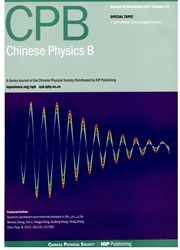

 中文摘要:
中文摘要:
The present paper deals with the numerical solution of time-fractional partial differential equations using the element-free Galerkin (EFG) method, which is based on the moving least-square approximation. Compared with numerical methods based on meshes, the EFG method for time-fractional partial differential equations needs only scattered nodes instead of meshing the domain of the problem. It neither requires element connectivity nor suffers much degradation in accuracy when nodal arrangements are very irregular. In this method, the first-order time derivative is replaced by the Caputo fractional derivative of order α (0 < α≤ 1). The Galerkin weak form is used to obtain the discrete equations, and the essential boundary conditions are enforced by the penalty method. Several numerical examples are presented and the results we obtained are in good agreement with the exact solutions.
 英文摘要:
英文摘要:
The present paper deals with the numerical solution of time-fractional partial differential equations using the element-free Galerkin (EFG) method, which is based on the moving least-square approximation. Compared with numerical methods based on meshes, the EFG method for time-fractional partial differential equations needs only scattered nodes instead of meshing the domain of the problem. It neither requires element connectivity nor suffers much degradation in accuracy when nodal arrangements are very irregular. In this method, the first-order time derivative is replaced by the Caputo fractional derivative of order α(0 〈 α≤ 1). The Galerkin weak form is used to obtain the discrete equations, and the essential boundary conditions are enforced by the penalty method. Several numerical examples are presented and the results we obtained are in good agreement with the exact solutions.
 同期刊论文项目
同期刊论文项目
 同项目期刊论文
同项目期刊论文
 Element-free Galerkin (EFG) method for analysis of the time-fractional partial differential equation
Element-free Galerkin (EFG) method for analysis of the time-fractional partial differential equation The TDGL equation for car-following model with consideration of the traffic interruption probability
The TDGL equation for car-following model with consideration of the traffic interruption probability The Korteweg-de Vires equation for the bidirectional pedestrian flow model considering the next-near
The Korteweg-de Vires equation for the bidirectional pedestrian flow model considering the next-near 期刊信息
期刊信息
